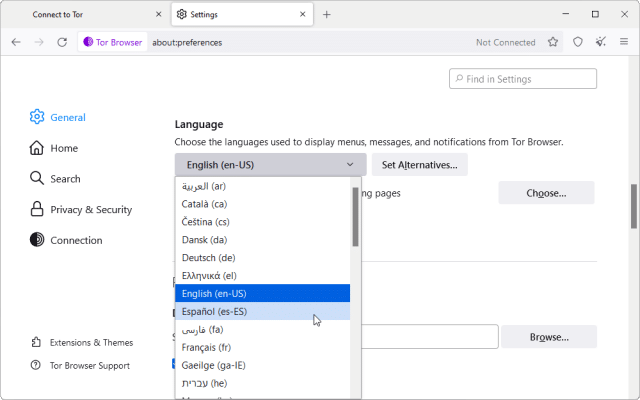Tor Browser 12 released, adds native Apple Silicon support and improves Android build's privacy and security

US nonprofit the Tor Project has announced the release of Tor Browser 12.0 for Windows (both 32-bit and 64-bit), Mac, Linux, and Android. The major change in version 12.0 is that its underlying code has now been updated to Firefox Extended Support Release 102.5.
Tor Browser is a Firefox variant, designed for accessing the internet through the open Tor network, which makes users harder to track online through a combination of multi-layer encryption and the use of relays to boost anonymity. In addition, the browser is configured with maximum privacy in mind through the use of private browsing by default alongside other anti-tracking tools.
There have been three point releases of Firefox 102 since Tor’s last major update (11.5) in early July, but rather than match each release, Tor's developers have spent the time carefully checking all updates to the Firefox code are compatible with Tor Browser prior to releasing 12.0 -- "anything that may conflict with Tor Browser's strict privacy and security principles has been carefully disabled", they stress.
Elsewhere, Tor Browser 12.0 introduces multi-locale support for desktop browsers -- now instead of wrestling with locale-specific builds or language packs, users can simply switch between languages via 'Settings > General > Language'.
Naturally, incorporating all languages in a single package file increases its size, but Tor’s developers have stressed that through "efficiency savings" elsewhere, the size is not that much larger than the previous release.
Mac users sporting the latest M1 and M2 Apple Silicon chips will be pleased to learn the app has followed Firefox’s example in rolling out a native build, which is combined in a single package with the existing Intel-compatible build.

The Android build, rolling out to Google Play as we type, now ships with HTTPS-Only Mode switched on by default for greater security -- this now includes protection against SSL stripping attacks that desktop users have enjoyed since 11.5’s release. Users also gain the ability to flick a switch to prioritize .onion sites where available, although the purple '.onion available' button found in the desktop build’s Address bar has yet to be ported across.
Other improvements cover the tor-launcher (the tool which launches tor within the Tor Browser) and letterboxing, which helps mask browser fingerprinting. Enhancements to the latter include various fixes against potential leaks and bypasses, removing the 1px border on full-screen videos and an option to disable the feature when browsing trusted pages.
The update is rounded off with the usual slew of minor bug fixes, security patches and other tweaks, which can be read in detail on the Tor Blog’s release announcement.
Tor Browser 12.0 is available now as a free, open-source download for Windows 64-bit, Windows 32-bit, Mac and Linux, and is currently rolling out for Android via the Google Play Store.
